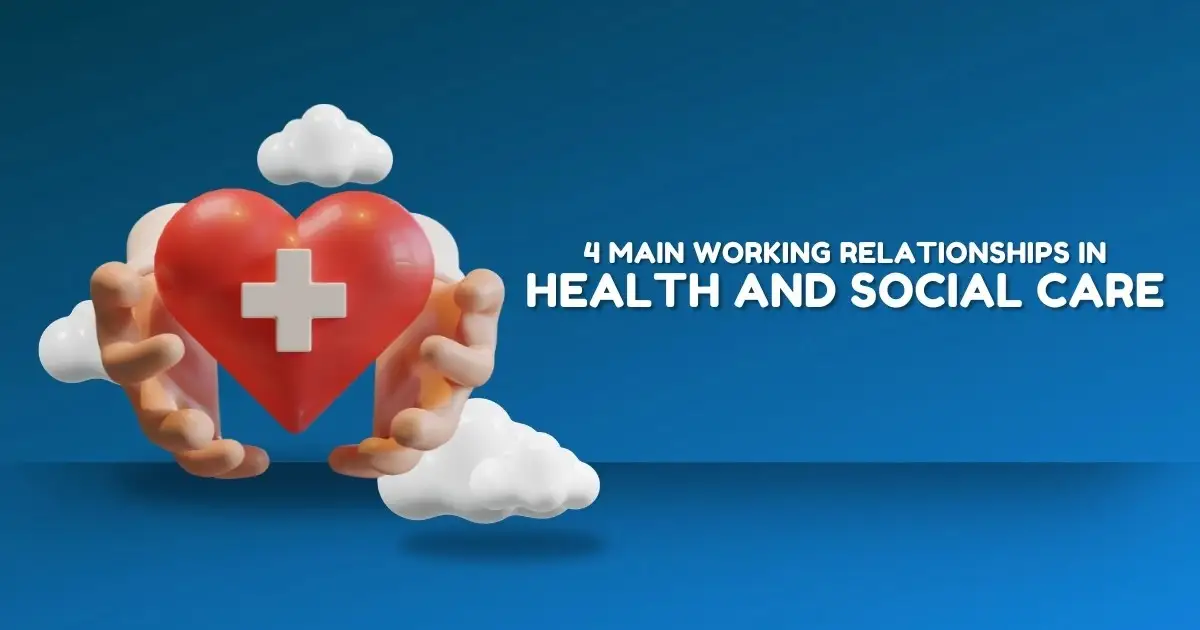How to Do a Hanging Indent in Word: Complete Guide for Students (2026)
Hanging Indent in Microsoft Word is a type of formatting style in which the first line of a paragraph has the left margi ...

Working relationships are the most important key features in health and social care, and they help us build flawless and efficient service delivery. We bring you the most important aspects that every professional who are working in the health and social care can take help from these aspects. Here are the four 4 main working relationships in health and social care: Peers & colleagues, service Users, supervisors and Managers, and the last one is External Agencies and Professionals.
Below we briefly explain all four main aspects of working relationships in health and social care. You also get reasons why they are so important.
Peers & colleagues stand for those who are working in a place where you encounter someone daily, such as administrative staff, care assistants, social workers, and nurses.
When it comes to teamwork then you have to build relations with your peers and colleagues, which causes a positive impact on the environment that helps to promote teamwork. When you build good relations with your co-workers, it'll definitely help you to grow yourself in the health and social care industry, and this is the first and most important essential in high-stress settings.
There are several things you can consider to build a good relationship with your colleagues, and here we have divided them into three categories which help you.
| Communication |
| Support |
| Respect |
These are the ones who are the main pillars of your industry who take your support and care, such as clients in community settings, patients in hospitals, and residents in care homes.
When a client, patient or any other person is going through a difficult time in their life and all they want from you is help or service that will help them feel included in their care, respected and valued. All of these things are the basic foundations of a good relationship.
| Empathy |
| Communication |
| Involvement |
These are the support staff who observe your work very closely, no matter what you do on campus, and they know where you lack and where you need guidance, support, and feedback. They are highly responsible for the good and bad things happening on campus, so they always maintain the standards and protocols.
This question is most important if you are pursuing a career in the health and social care sector, as a good relationship with your manager or supervisor can help you enhance your professional development in the industry. Below, we are providing tips which can help you build a positive relationship:
| Transparency |
| Feedback |
| Professionalism |
External agencies, as the name suggests, are located outside your workplace. It usually includes organisations such as social services, nonprofit organisations, healthcare services and many more. This category includes professionals like doctors, therapists, counsellors, social workers, etc, from different institutions and organisations.
External agencies, associated with our professions, give rise to various resources and expertise, which act as an enrichment to the care provided to the service users. The value of these relationships with working professionals is worth effective and operative.
| Networking |
| Communication |
| Cooperation |
Let’s discuss some realistic scenarios to understand the work of these relationships in regular practice.
Sometimes it becomes challenging to build and maintain these relationships smoothly. Here are some common issues and their solutions to overcome them:
Miscommunication can lead to misunderstandings in situations of high-pressure environments. Clear documentation and communication, as well as regular meetings, can solve this issue to a very great extent.
Conflicts take place where disagreements arise. Disagreeing is a natural phenomenon; tackling it professionally is all needed. By using conflict resolution techniques, you can get rid of these differences of opinion.
High workload can ruin the relationship by straining the energy. Effective time management is the key to resolving the issue of heavy workload that will take away your work pressure and reduce your workload.
These relationships in healthcare and social care are the major backbone of effective service. Understanding its working and challenges gives us the complete outline of its dynamics and role through which it effectively functions and benefits the environment. Collaboration and relationships between colleagues, supervisors, service users or external professionals are what make the organisation successful, building trust, reliance, respect and strong communication, all of which lead to better outcomes under organisations such as external agencies and professionals.
Let's Book Your Work with Our Expert and Get High-Quality Content

Loved reading this Blog? Share your valuable thoughts in the comment section.
Add comment